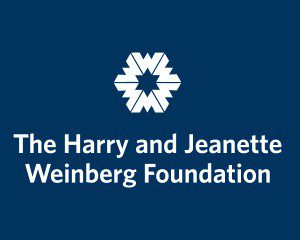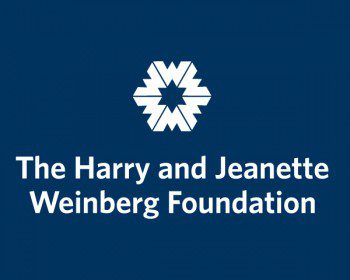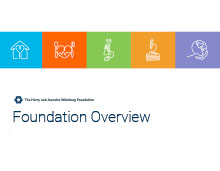The Harry and Jeanette Weinberg Foundation today announced the full launch of the Homecare Aide Workforce Initiative. The Weinberg Foundation is providing $1.6 million of the total $2.95 million project cost. The Initiative will help set a national standard for paid caregivers.
Roughly 20 percent of the care for frail and chronically ill older adults is provided by a workforce of roughly 3.2 million paid caregivers throughout the United States. This innovative project will lead to improved care for older adults while simultaneously benefiting those who have made a career by providing that care. The Homecare Aide Workforce Initiative will establish a best practices baseline for recruitment, training, and supervision of paid caregivers.
“We were disturbed to learn that these workers, who provide care for our frailest and most vulnerable relatives, neighbors, and friends, have among the lowest levels of training and few, if any, employee benefits,” said Rachel Garbow Monroe, Weinberg Foundation President. “Through the Homecare Aide Workforce Initiative, the Weinberg Foundation is taking what we believe is a major step toward not only addressing these serious issues but also proactively improving the overall care of vulnerable older adults as well as the workplace security and satisfaction of those who are paid to care for them.”
In collaboration with UJA-Federation of New York and several of their beneficiary agencies — Selfhelp Community Services, Inc., Jewish Home Lifecare, CenterLight Health System, and Metropolitan Council on Jewish Poverty; PHI (the Paraprofessional Health Institute); the Visiting Nurse Service of New York; New York Alliance for Careers in Healthcare; the Tiger Foundation; the Surdna Foundation; and the New York Community Trust; this 27-month program will provide hands-on, intensive, comprehensive, and specialty training to at least 600 new and 400 experienced homecare workers. Learn more by clicking here.
By 2020, it is estimated that the United States will need 5-million direct care workers. When this happens, the U.S. will have more direct care workers than teachers for grades kindergarten through 12.
“For the Weinberg Foundation, the Homecare Aide Workforce Initiative is the next step in the Foundation’s overarching vision for improved care for disadvantaged and vulnerable older adults,” said Barry Schloss, Weinberg Foundation Trustee. “The Foundation is just completing its first Caregiver Initiative, a three-year, $8.1 million project involving 14 organizations in nine states intended to identify supports and services for family and informal caregivers. The final evaluation findings for this initiative will be released soon,” Schloss added. “But the Weinberg Foundation has already seen dramatic results which – coupled with the paid caregiver training program now underway – frame a brighter, more secure future for our aging population.”
Older adults and workforce development represent the Weinberg Foundation’s two largest areas of grantmaking with a combined total of approximately $45 million in grants per year.



